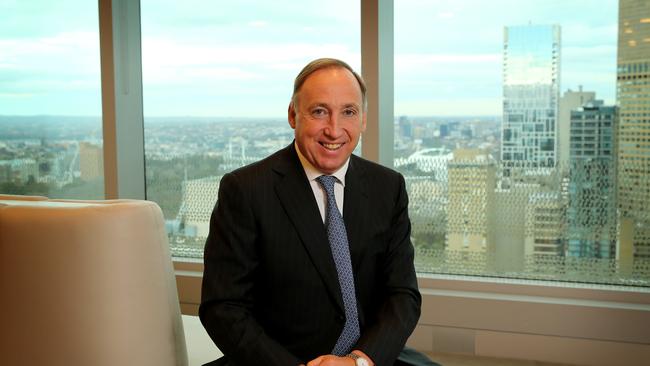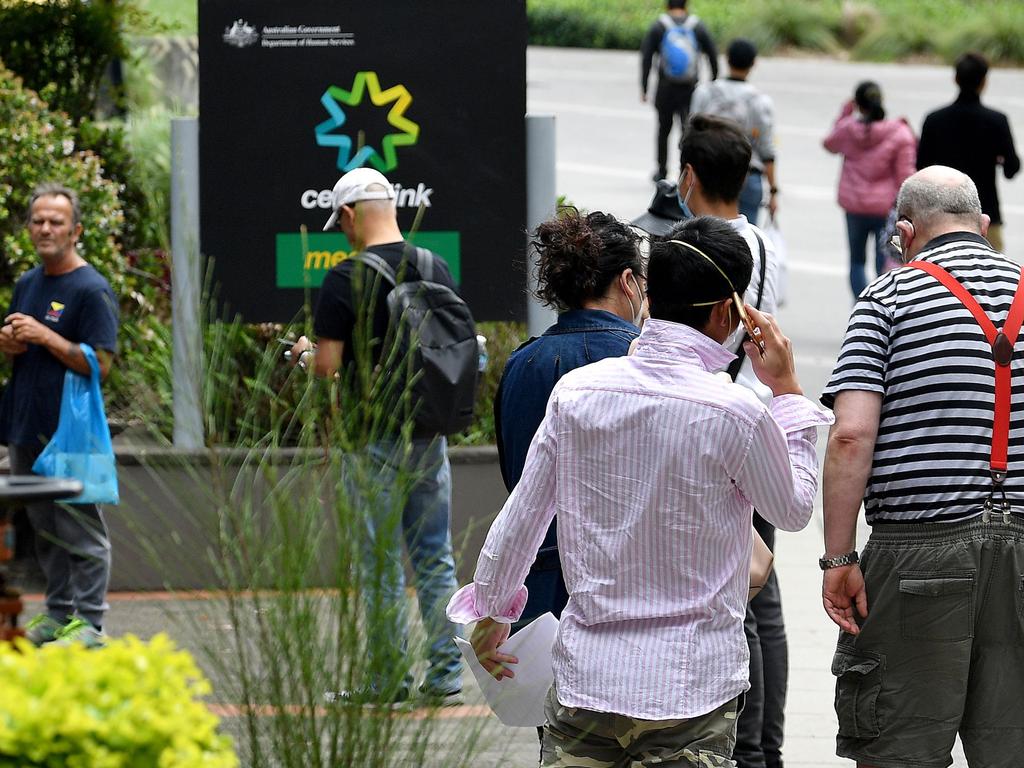
Three of the biggest, with combined funds under management of $385bn, topped the super ratings average, showing a return of 1.2 per cent for the year.
First State Super came in at 1.3 per cent, just ahead of Unisuper at 1 per cent and AustralianSuper at 0.52 per cent but all three beat the market, and any way you look at it they showed the value of diversity.
The near-term danger is set to hit in October according to Unisuper’s John Pearce, who is watching nervously to see what happens to the economy when the government stimulus runs out.
AustralianSuper’s Mark Delaney says the answer is simple: if the economy hasn’t improved by then the stimulus must be retained in some form.
Both figure in 18 months the market will be posting good returns thanks to interest rates at record lows and a truckload of government stimulus to boost the economy.
Just whether Josh Frydenberg is happy to support the bullish outlook remains to be seen, but both fund managers see little choice but to keep the pump primed.
Delaney said, come February when the market peaked, he wasn’t sure how to play COVID-19. At the end of the day he made very few changes to a winning formula, except at the margin to cut fixed balances and boost cash.
Given the extraordinary volatility over the past 12 months, the last financial year was a classic example of why retail punters should not try to time markets.
If you did last year you would have been left stranded.
AMP’s Shane Oliver noted that total returns, including dividends, were up 3.1 per cent in the first half of the financial year before falling 10.4 per cent in the last six months.
It gets worse because the market collapsed in the first quarter before bouncing 16.5 per cent in the last quarter.
Over that time AustralianSuper’s Delaney basically sat on his hands.
For superannuation investors another truism was highlighted, with the balanced fund showing almost as good a return as the growth option, which is typically all in stocks.
The AustralianSuper growth fund returned 0.6 per cent and the balanced fund 0.52 per cent, which is pretty close.
The latter has the bulk of its funds under management, at around $130bn out of $185bn, which shows where the smart money is based.
Diversity also came to the managers’ rescue with AustralianSuper’s overseas equities posting an 11.4 per cent gain in the 2020 financial year, with Australian equities down 6.6 per cent in price terms.
In March, AustralianSuper wrote down the value of its unlisted assets by 7.5 per cent, which knocked 2.2 per cent from the returns of its balanced fund.
“To arrive at the end of the financial year with a positive result given the turmoil we have seen is a very good outcome for members,” said AustralianSuper investment chief Mark Delaney.
Delaney told The Australian: “The economy has grown faster than people had expected over the past few months. Governments are spending big, interest rates are low and the financial markets are coming in behind them. Financial markets are now more confident that outbreaks can be managed.”
AustralianSuper has $185bn under management, with 55 per cent of its money invested in equities and 33 per cent in international equities.
“The Australian market is too concentrated to buy sectors, so you have to pick individual stocks within sectors,” Delaney said.
The fund is overweight in US growth stocks, particularly the big tech names like Amazon, Google and Apple. Fixed interest’s share of the portfolio has fallen from 13 per cent at the end of June to around 8.4 per cent, with cash up from 7.5 per cent to 8.7 per cent.
AustralianSuper’s balanced option has returned 7.35 per cent a year over five years, 8.77 per cent a year over 10 years and 7.31 per cent a year over 15 years.
Asked about the dangers ahead, Mr Delaney said there were worries that if the Democrats swept the US election that would be bad for markets.
“There is no concern with Joe Biden winning the presidency, just if the Democrats also sweep congress,” Delaney said.
Other dangers include COVID-19 — if it proves harder to get rid of and if economic stimulus is withdrawn too quickly.
“Some sectors are obviously worse off, like tourism, education and entertainment, so maybe targeted payments or reduced payments,” he added.
Delaney rejects the push to stall planned increases in the superannuation guarantee, saying “there is a danger in trying to manage short-term economic policy with long-term investments”.
“Adjusting the portfolio based on panicked headlines is the wrong way to go,” he added.
Delaney said “digitisation of services is the key technology development of the virus”.
“Most of my investment staff are happy to work from home because there are fewer disruptions,” he said, pointing out that in future most people would only work two to three days a week in the office, and he had enjoyed working from home.
AustralianSuper is pushing ahead with plans to open a New York office of around 20 people, focusing on private equity, infrastructure and credit, although COVID-19 had delayed the rollout.
Recycling reboot
Pact’s Sanjay Dayal is enthusiastic in support of the government’s $190m boost to recycling, which backs his own plans to invest $500m in the circular economy.
Pact is building a $46m PET recycling plant with Cleanaway and Ashai in the Nexus Precinct north of Albury, due to be finished late next year, with the ability to recycle 28,000 tonnes of PET or one billion bottles.
Next on the agenda is a polyethylene recycling plant covering plastic milk bottles and the like in Laverton.
The latter may qualify for the government’s plan, which is one-third federal money, one-third state and one-third private company.
Pact makes mobile plastic garbage bins, which are now 80 per cent recycled, up from 30 per cent a few years back.
High hopes
AustralianSuper’s Mark Delaney argues the Australian market is so concentrated it’s all about stock rather than sector selection.
The market darling is Afterpay, which has more than doubled this calendar year to close at $68.
The buy-now, pay-later sector in the latest RBA payments report accounted for $6bn in payments after five years and against total payments of $1 trillion compared to the RBA’s own digital system, which accounted for $300bn.
That’s a big growth forecast.








The pitfalls of market timing and benefits of diversity came shining through as some of the biggest superannuation funds managed to scrape through with positive returns.